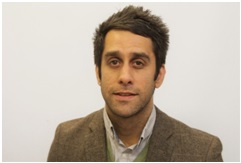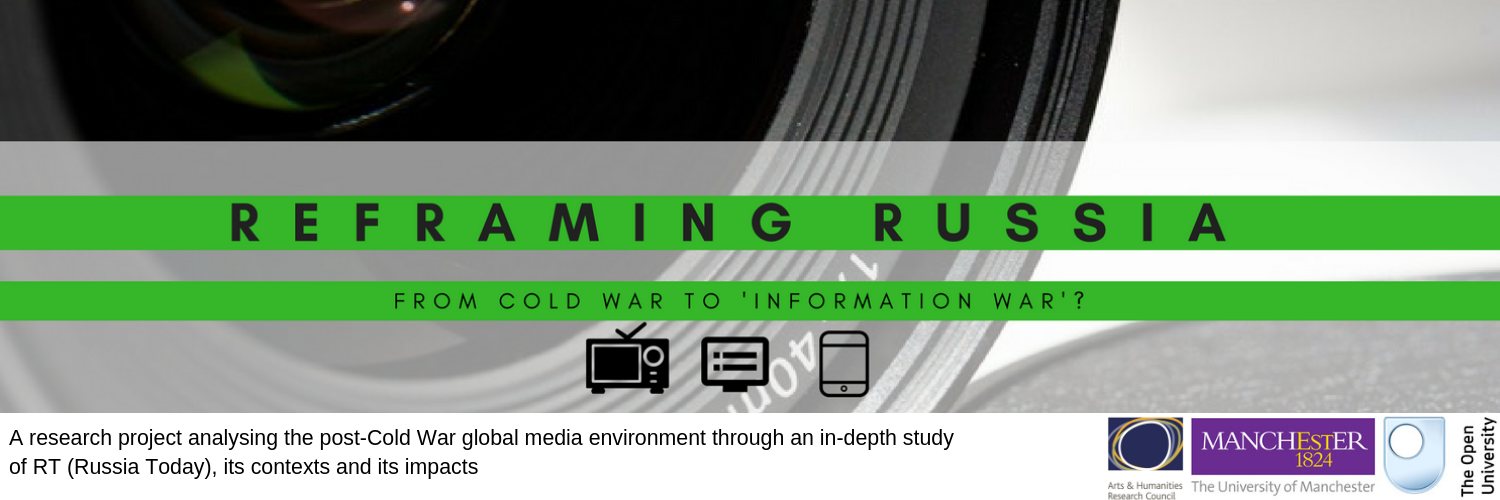Representing terrorism
There is an intimate relationship between the news media, politicians and terrorist groups. For journalists, terrorist violence fulfil several essential “news values” that help to attract and secure large audiences. Politicians and terrorist groups use the news media to promote their own, preferred images, symbols and representations. Indeed, given the relatively infrequent nature of terrorist attacks in the United Kingdom, for most of us, news media representations formulate one of our primary sources of knowledge about such phenomena. Despite access to a growing range of information sources, research suggests that television remains the most important source of news for citizens across the Western world during terrorist incidents. And yet, often news media representations distort public understanding of terrorism and reinforce simple “us” and “them” binaries.

It is these representational practices that I explore in my latest book, The BBC, the “War on Terror” and the Discursive Construction of Terrorism: Representing Al-Qaeda. Published as part of Palgrave-Macmillan’s “New Security Challenges” series, it interrogates the shifting ways in which the BBC sought to represent the al-Qaeda phenomenon for British television audiences during the opening stages of “war on terror” (2001-2011). Drawing on the work of French philosopher Michel Foucault, and combining rigorous multimodal analysis of BBC “News at Ten” bulletins and interviews with the Corporation’s top journalists and editors, the book the provides much-needed insight into the way these representations developed over a ten-year period.
As the nation’s most trusted news provider, with over 80% of Britons using its services daily, the BBC makes an important case for extended analysis. Its “News at Ten” bulletin, the subject of my analysis, regularly receives around 35.9% share of audience ratings, and is the U.K.’s most watched news programme. Yet, when it comes to coverage of issues of war, political conflict and terrorism the Corporation has been criticised for its bias and the fact that it often functions as a mouthpiece for the state. My book, however, paints a more complex picture of the BBC and provides deeper insight into the challenges faced by the broadcaster today.
Challenging dominant representations of terrorism
In the widespread uncertainty following the September 11th 2001 attacks, the BBC’s representations functioned as a site for a continually-shifting range of fears, identities and discourses. Simplistic, cliché-ridden stereotypes about the East, Islam and terrorism appeared alongside more nuanced assessments of the various aims, motivations and backgrounds of the hijackers.
During the first few days of coverage, for example, al-Qaeda was depicted as a conventional “terrorist organisation”, “a group of Arab fundamentalists” or “an umbrella network of Islamic militants”, alongside more fleeting characterisations as a “faceless”, “elusive”, “shadowy” and “unseen enemy”. Visually, these tensions were further played out by juxtaposing images taken from al-Qaeda’s grainy, home-spun propaganda releases with a series of more benign, yet equally unsettling, family portrait photos of the hijackers. While sometimes bewildering for audiences, these fluid patterns of depiction served to call into question deep, culturally-ingrained representations of the terrorist “Other”, offering deeper insight into the everyday reality of the terror threat.
The complexity of these representations became even more apparent with the July 7th 2005 London bombings. Since the perpetrators were British citizens, BBC journalists began to explore difficult questions concerning the identity of the bombers and their possible motives. This not only involved correspondents directly quoting from al-Qaeda propaganda statements describing the attacks as “revenge against the British government for… its massacres in Iraq and Afghanistan”. It also led to several reports exploring the perception of Western foreign policy on individuals within Muslim communities across Britain. In one report, for example, a Leeds teenager suggests that “[i]t doesn’t help when there are these American and English are going into our countries and killing our brothers and sisters” (emphasis in original).
Home Affairs Editor Mark Easton offers insight into the challenges faced by BBC journalists at the time. As he explains,
I think that it is absolutely right after such an appalling series of attacks that we reflect really hard on what this tells us about our society and the things that helped create that situation; to ask ourselves difficult questions, and indeed ask what we could, and should, do to try to prevent this happening again… The motivation from our point of view was to try and understand a confused and contradictory and difficult situation, not to over simplify, but equally not to dismiss as too complicated to go into. We absolutely had to understand the environment in which those attacks happened.
The BBC’s own Editorial Guidelines and public purposes further help to explain such fluid representations. These policies specifically call upon the broadcaster to not only avoid playing politics with terrorism, but also report on such issues in an impartial and socially responsible manner. This led the BBC to find ways to draw a clear distinction between al-Qaeda’s violence and the beliefs and practices of Britain’s 2.7 million Muslims.
Drawing boundaries around the BBC’s representations
Importantly, despite the complexity of such portrayals, my findings do lend some support to the BBC’s many critics. In particular, around the time of the 2003 Wood Green ricin plot, the BBC’s representations aligned themselves much more closely with the government’s own exaggerated threat assessments. The event was considered the first instance of “al-Qaeda-related” activity in the U.K., and reporting incorporated careless speculation about the alleged links between al-Qaeda, Saddam Hussain’s Baath Party and weapons of mass destruction. Taken together with wider social anxieties regarding immigration and Britain’s asylum policy, this meant that the broadcaster led considerable support to claims made at the time by politicians such as Tony Blair and Colin Powell. In one report, for example, London correspondent Ben Brown made the connection explicit, stating, “[d]ocuments discovered in Afghanistan showed Osama bin Laden’s terror network had planned to produce ricin, and the Iraqis are said to have manufactured it in the past”. These comments were immediately followed a statement by the prime minister, declaring “[i]t is only a matter of time before terrorists get hold of it [weapons of mass destruction], and as the arrests that were made earlier today show, the danger is present and real and with us now, and its potential is huge”.
What is most concerning about the BBC’s coverage of this event, however, is the fact that it coincided with the final build-up to the invasion of Iraq in March 2003. In my interviews with those who reported on this case, few were comfortable discussing this period. One correspondent noted, anonymously it should be said, that the Corporation was somewhat unwittingly “sucked into the narrative of the ‘war on terror’” during this event. Indeed, given the shifting portrayals witnessed in the aftermath of the September 11th 2001 and July 7th 2005 attacks, the representations seen here clearly raise significant questions for the BBC and its ability to challenge “official” accounts when covering alleged terrorist plots. As I suggest in the book, during such events, government control over the flow of information severely limits the range of representations the broadcaster can offer its audiences, thus leading to more simplistic depictions.
Looking forward
Evidently, the BBC has a difficult balancing act when it comes to representing phenomena such as al-Qaeda. First, it must provide citizens with vital information about the threat posed, the diverse origins of those involved and the context and causes in which they act, and the ways in which government are expected to respond. Moreover, it has to do this in ways that steer an informed middle-ground between “official” and “unofficial” representations, and thus avoiding propagandising on behalf of one group over another, while also avoiding alienating sections of its audience. Despite focusing on one facet of its news output, The BBC, the War on Terror and the Discursive Construction of Terrorism provides a clearer assessment of the way the Corporation represents terrorist phenomena such as al-Qaeda and sheds light on the barriers to such portrayals.
And in an era in which the very notions of “truth” and “factuality” are increasingly being called into question by both political elites and citizens themselves, the difficulties facing the BBC are certainly not going away. It is subject to frequent attacks from both left and right-wing politicians, global media outlets such as RT, a partisan and increasingly bitter press, and a host of new “attack-sites” such as Media Lens, The Canary, News-Watch and Biased BBC. This has fed repeated calls to end its licence fee. The broadcaster faces more threats than ever in today’s hypercompetitive and multi-layered media environment, and in the face of such pressures, the BBC must seek to maintain the quality of its reporting and its ability to offer nuanced representations of terrorist phenomena.
Yet, the picture is not all bleak. While it is clear that the BBC does not always adhere to its own exacting standards, what distinguishes it from other news organisation is that it is a broadcaster that has an enduring capacity to learn and reflect on its journalistic practices. As veteran correspondent, and current BBC Middle East Editor, Jeremy Bowen put it to me,
I think there is an ongoing attempt at the BBC to want to educate people in terms of what’s going on around the world, and I think that what it takes is a lot of editorial vigilance, that editors and senior editors need to be able to say that “look, the tone isn’t quite right” or “the nuance is wrong”. And as well as that, not to fall into easy stereotypes. Sometimes as well, to be aware of the frames that governments use and you have to be critical of that. And when governments and militaries use these umbrella terms, like “the war on terrorism”, you’ve got to be quite careful to try to look at the bigger context and deconstruct it if necessary. This of course takes time and effort, but I know it is possible and can be done.
 Jared Ahmad is a lecturer in Journalism, Politics and Communication at the University of Sheffield. He is the author of The BBC, the ‘War on Terror’ and the Discursive Construction of Terrorism: Representing Al-Qaeda (Palgrave 2018) and his work has also been published in international journals such as Critical Studies on Terrorism and Media, War and Conflict.
Jared Ahmad is a lecturer in Journalism, Politics and Communication at the University of Sheffield. He is the author of The BBC, the ‘War on Terror’ and the Discursive Construction of Terrorism: Representing Al-Qaeda (Palgrave 2018) and his work has also been published in international journals such as Critical Studies on Terrorism and Media, War and Conflict.
